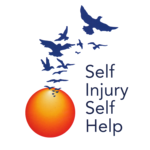Coronavirus (Covid-19):
We regret that we have not yet been able to reopen the SISH Support Group, due to Covid-19 and the continued need for social distancing to avoid the risk of spreading the virus among our group members and volunteer facilitators.
Please keep checking this website as we are looking forward to returning. We will be keeping the situation under review, with a plan to reopen as soon as it is safe to do so.
In the meantime, here is a useful link which gives advice about where to turn in a crisis and includes a list of national helplines:
https://www.centreformentalhealth.org.uk/crisis-contacts
Also…
Below is a link to the animation ‘F.A.C.E C.O.V.I.D’:
https://www.youtube.com/watch?v=BmvNCdpHUYM&feature=share
Other helpful links:
Bristol Mind: http://bristolmind.org.uk
Changes (Bristol): https://changesbristol.org.uk/support-groups/
Self Injury Support https://www.selfinjurysupport.org.uk/our-support-services
Samaritans https://www.samaritans.org/
Who are SISH?
SISH stands for ‘self injury self help’, and are a Bristol based community organisation, who for 15 years, have been running self help support groups for people who self injure.
The original founders of the group wanted to create a safe space to talk about their self harm, and offer and receive support from each other that was non-judgemental and accepting.
The groups have run with these core principles ever since, and are one of the few self injury self help groups in the country.
What do we mean by self injury / self harm?
People of all ages and backgrounds do things that are harmful to themselves especially when they are under pressure or in distress. Self injury is also sometimes known as self harm. For SISH, self harm means that anything that a person views as self injury or self harm counts! Here are some examples: cutting; burning; biting; thumping self or objects; swallowing objects or substances; overdosing. Other people may also include: not looking after themselves; dangerous driving; getting into fights; staying in relationships that make you feel bad. Self injury or self harm is a very personal thing.
There are many reasons why a person may use self injury. To cope with difficult feelings, memories or situations; to let out anger or distress; to get a sense of control over themselves and their life and many other reasons beside!
In the past, members have attended the SISH group who are actively self injuring, or dealing with scars relating to past self injury, or concerned that they are having worrying thoughts that they might hurt themselves in some way. Some people attend because they see other behaviours, such as their use of sex or food, as harmful to themselves. Whatever you are concerned about, SISH is there for you.
What support can I get from the SISH Support Group?
We know it can be really hard to reach out for support. We know it takes a lot of courage to come along to a group especially for the first time. You are not alone. SISH will always give you a warm welcome (with free tea and coffee) without any pressure to say or do anything you don’t feel comfortable with.
SISH offers a confidential, non judgemental, safe space for any individual for whom self injury is an issue. Facilitators of the Support Groups are all trained and supervised to work sensitively with any issues about self injury, and often have personal experience of the issues raised.
Do I need a referral to access the group?
No, there is no need to be referred into the groups. The Support Group is open to anyone, so you can just turn up if you want to. The Making Changes group will run over 6 sessions and you can self refer to sign up for this course if you think you would find it helpful.
How old do I need to be to attend a support group?
18+ There is no upper age limit – all are welcome!
Are there any rules?
To make use of the group you need to be OK enough to receive and give support.
We have these group rules to keep members safe:
- The support groups, which are for anyone over the age of 18 years, are confidential. We keep a list of names of those who attend, for funding purposes. We don’t keep any other records.
- It is important for each person to be able to give and receive support – this includes giving each other time and space to talk.
- It’s OK to talk about self-harm, we’d just ask you to be thoughtful about how much detail you share to avoid triggering or upsetting others.
- It is important that each member treats others with respect, so that the groups are a safe and supportive space for everyone.
I would like more information about self injury / self harm and other support
We have put together a resource list of local (Bristol area) and national resources that you may find helpful on our Resources Page.
I need to talk to someone right now about how I’m feeling…
Unfortunately SISH is not a crisis service, and we cannot offer a phone or email support service.
If you need to talk to someone now, you could call the Samaritans on 08457 90 90 90 (local rate calls, 24/7) or email jo@samaritans.org or see their website at www.samaritans.org to find out more.

